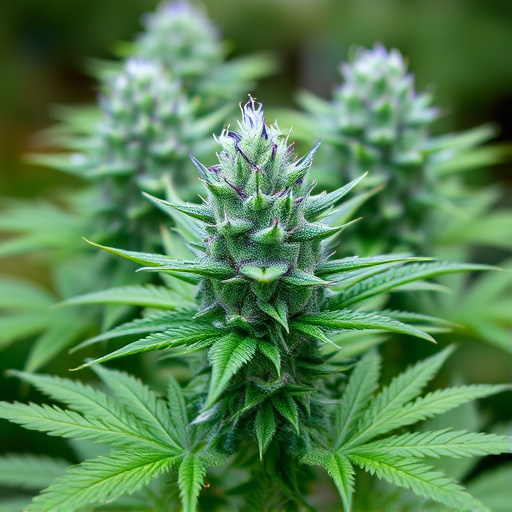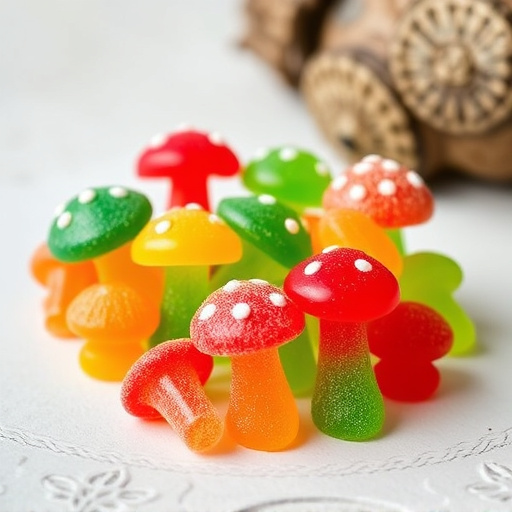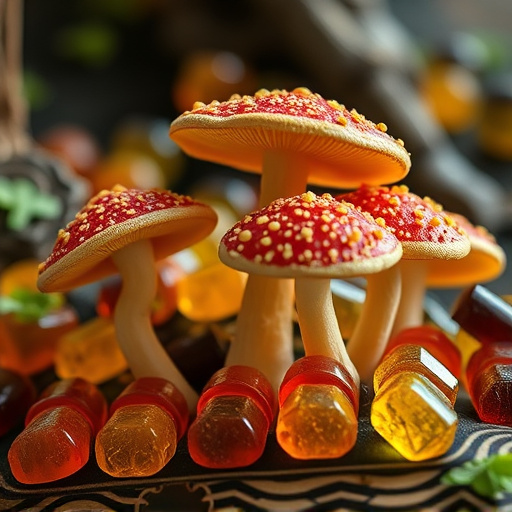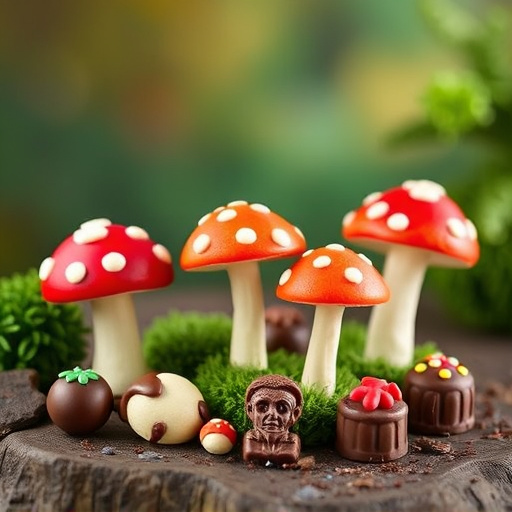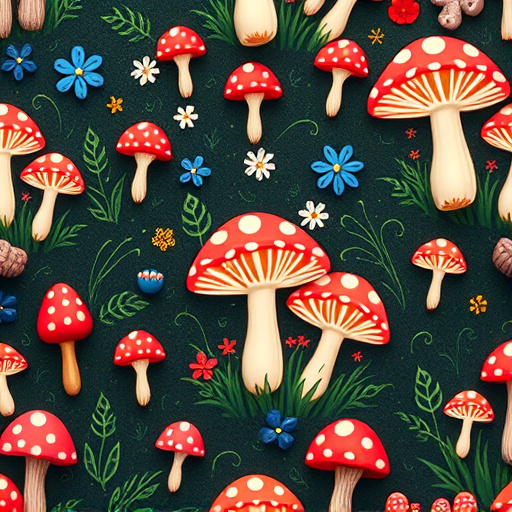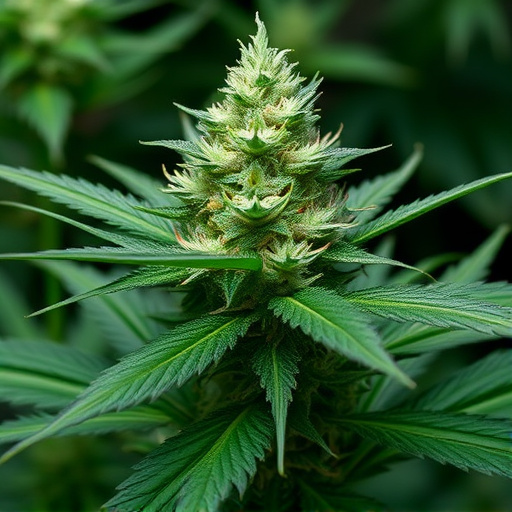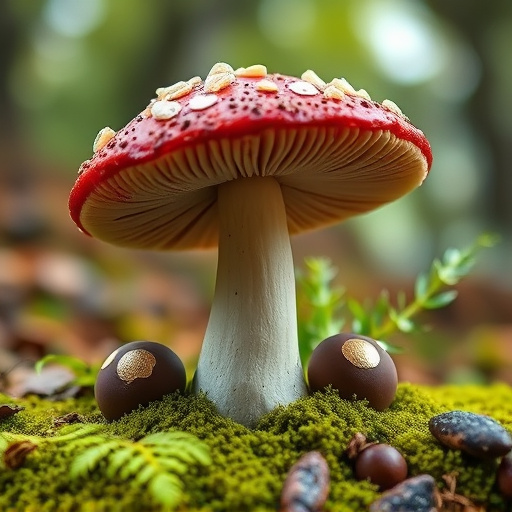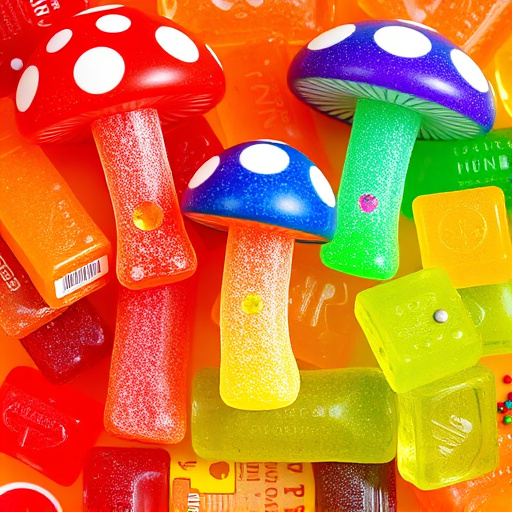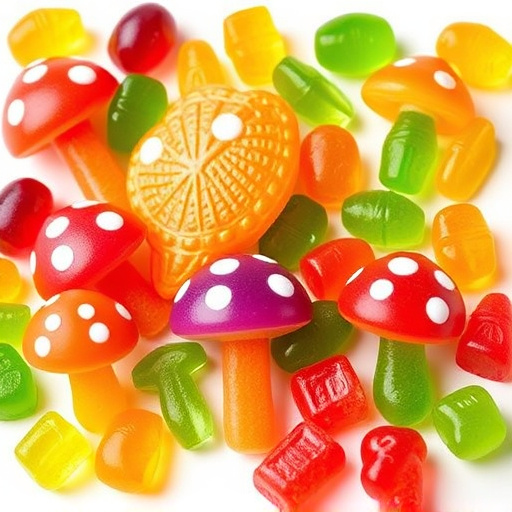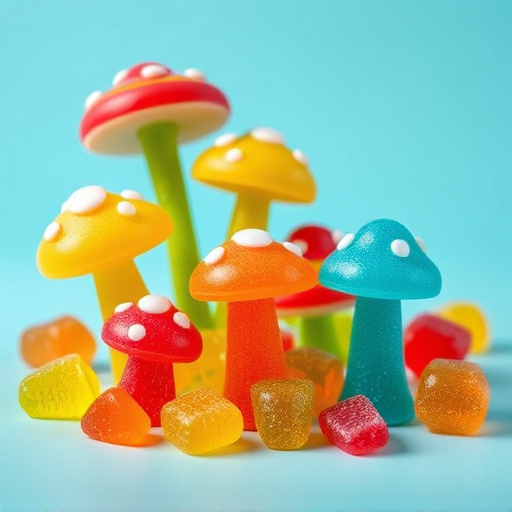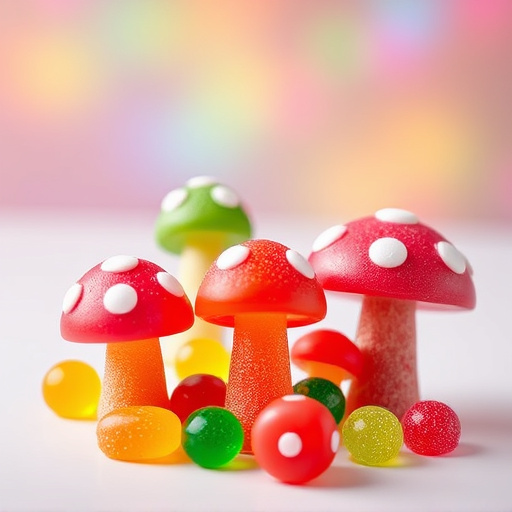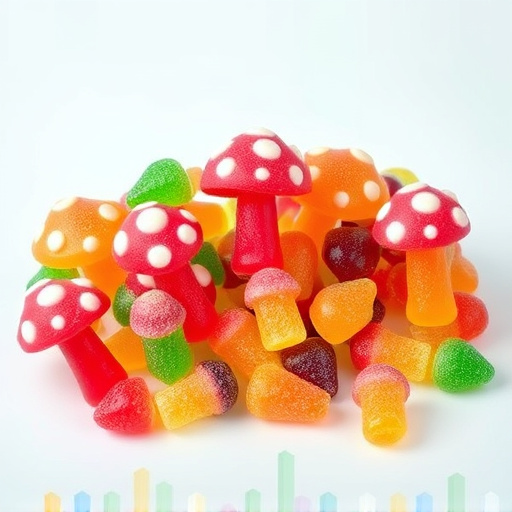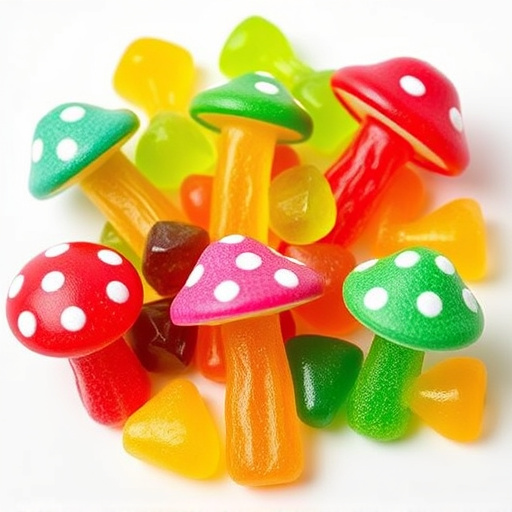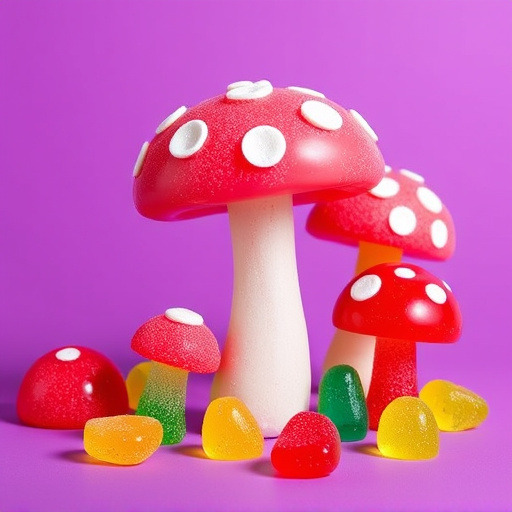Magic mushroom gummies, enriched with psilocybin, revolutionize brain function through serotonin receptor interactions, leading to creative boosts, emotional well-being, and positive mental shifts. Research indicates their potential as therapeutic aids for depression, anxiety, and PTSD by enhancing neuroplasticity. These gummies offer a discreet, convenient, and precisely dosed alternative to traditional consumption methods, making them ideal for exploring brain function with privacy and predictability in both recreational and therapeutic contexts.
“Unveiling the Power of Magic Mushroom Gummies: A Revolution in Cognitive Enhancement? This insightful article delves into the intriguing world of psychedelic-infused treats, focusing on their effects on brain function. We explore the science behind magic mushroom gummies and how they differ from traditional consumption, revealing their potential to boost cognitive abilities. From studies on psychedelic-assisted therapy to dosage guidelines, we uncover the benefits and safety considerations of these innovative products, all while navigating the evolving regulatory landscape.”
- The Science Behind Magic Mushroom Gummies and Their Impact on Brain Function
- – Exploring the active compounds in magic mushrooms and how they interact with the brain
- – Differences between traditional mushroom consumption and gummy form
The Science Behind Magic Mushroom Gummies and Their Impact on Brain Function
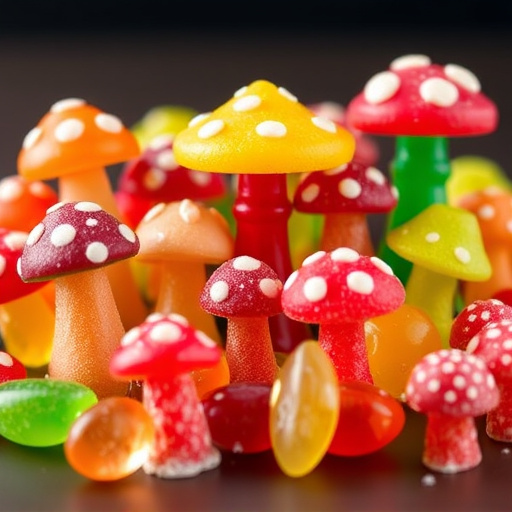
The science behind Magic Mushroom Gummies reveals a fascinating connection between their active compounds—psilocybin—and brain function. Psilocybin, the psychedelic compound found in certain types of mushrooms, has been the subject of extensive research due to its potential therapeutic benefits. When consumed as gummies, these compounds interact with specific receptors in the brain, leading to altered states of consciousness and a range of psychological effects. Studies show that magic mushroom gummies can stimulate creativity, enhance emotional well-being, and even promote positive mental shifts by increasing neuroplasticity—the brain’s ability to form new neural connections.
This interaction isn’t just about pleasure or hallucinations; it has practical applications in therapeutic settings. Research suggests that psilocybin-assisted therapy could be effective in treating conditions like depression, anxiety, and post-traumatic stress disorder (PTSD). By influencing brain circuits involved in mood regulation, memory, and fear processing, magic mushroom gummies have the potential to offer lasting improvements in mental health outcomes.
– Exploring the active compounds in magic mushrooms and how they interact with the brain
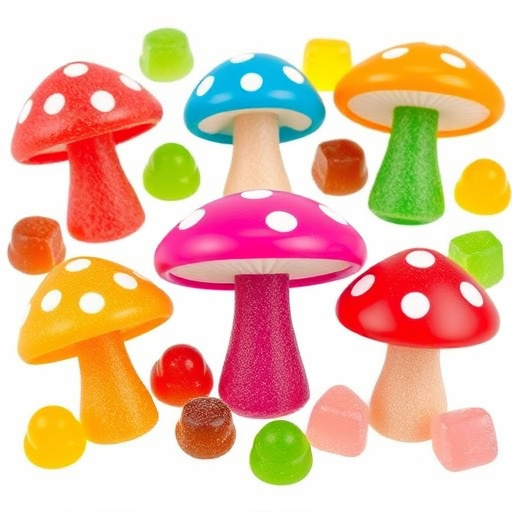
Magic mushrooms, scientifically known as Psilocybin mushrooms, contain powerful active compounds that have a profound impact on brain function when consumed. The primary compound of interest is psilocybin, which is a psychedelic amino acid that acts on serotonin receptors in the brain. These receptors play a crucial role in regulating mood, perception, and cognition. When psilocybin binds to these receptors, it alters brain activity, leading to a range of effects, from enhanced creativity and altered time perception to profound spiritual experiences.
The unique interaction between magic mushroom gummies and brain chemistry results in a complex set of experiences known as psychedelic effects. These can include visual and auditory hallucinations, synesthesia (blending of senses), and altered states of consciousness. The experience is often described as a journey or a deep sense of connection with oneself and the environment. Research suggests that this interaction may also stimulate neuroplasticity, the brain’s ability to form new neural connections, which could potentially have therapeutic benefits for mental health conditions.
– Differences between traditional mushroom consumption and gummy form
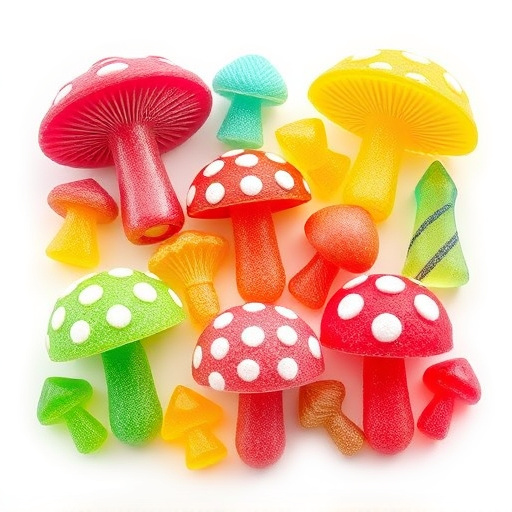
The way magic mushrooms are consumed has evolved with the introduction of gummy forms, offering a unique alternative to traditional methods. While whole mushrooms or powdered forms have been popular for their potent effects on brain function and overall well-being, gummies provide a discrete and convenient option. Magic mushroom gummies allow for precise dosing, making it easier to control the intensity of the experience. This is particularly beneficial for those exploring psilocybin for therapeutic purposes.
Unlike traditional consumption methods that require preparation and may have varying effects based on preparation techniques, gummies offer a standardized dose. The extraction process for magic mushroom gummies ensures the active compounds, including psilocybin and psilocin, are preserved, providing a more predictable experience. This form also offers discreteness, making it accessible for individuals who prefer a more private approach to incorporating these powerful fungi into their wellness routines.
Magic mushroom gummies offer a novel way to experience the potential benefits of these fungi, providing a convenient and potentially stronger alternative to traditional consumption. The active compounds in magic mushrooms, primarily psilocybin and psilocin, have shown promising effects on brain function, including enhanced creativity, improved mood, and reduced anxiety. However, it’s crucial to approach their use with caution, as individual reactions vary. Further research is needed to fully understand the long-term impacts of magic mushroom gummies on brain health and well-being. As with any psychoactive substance, informed consent and responsible usage are essential.
